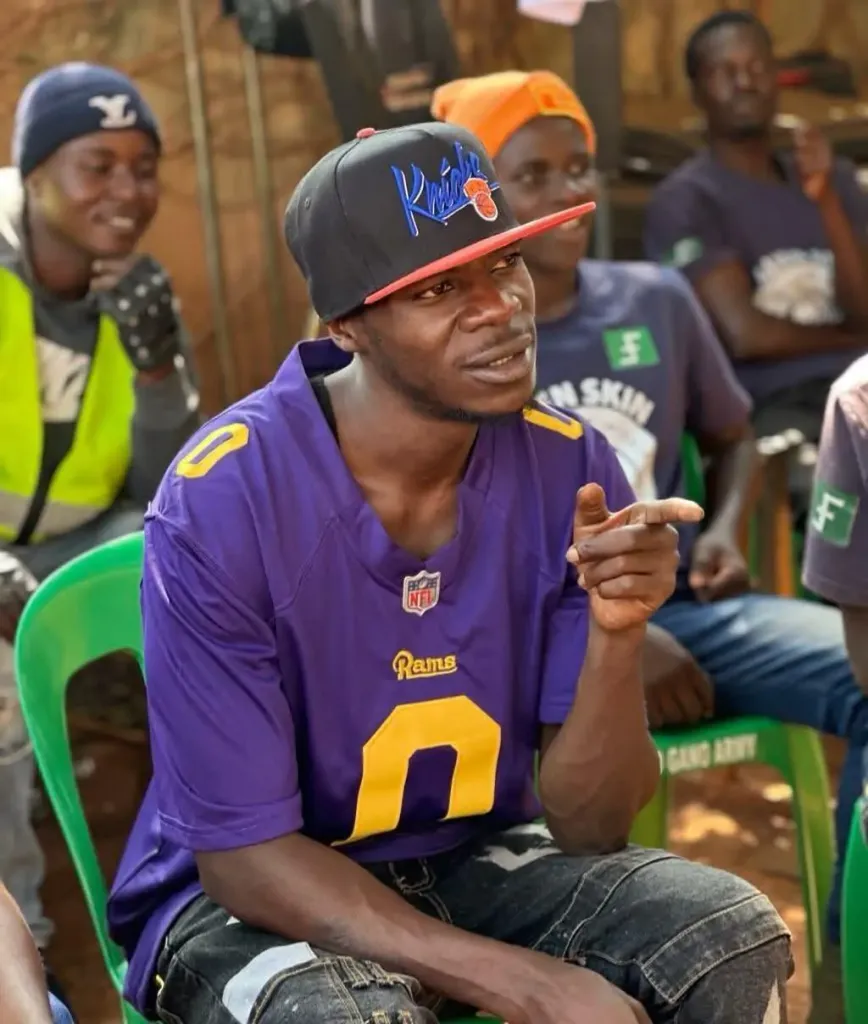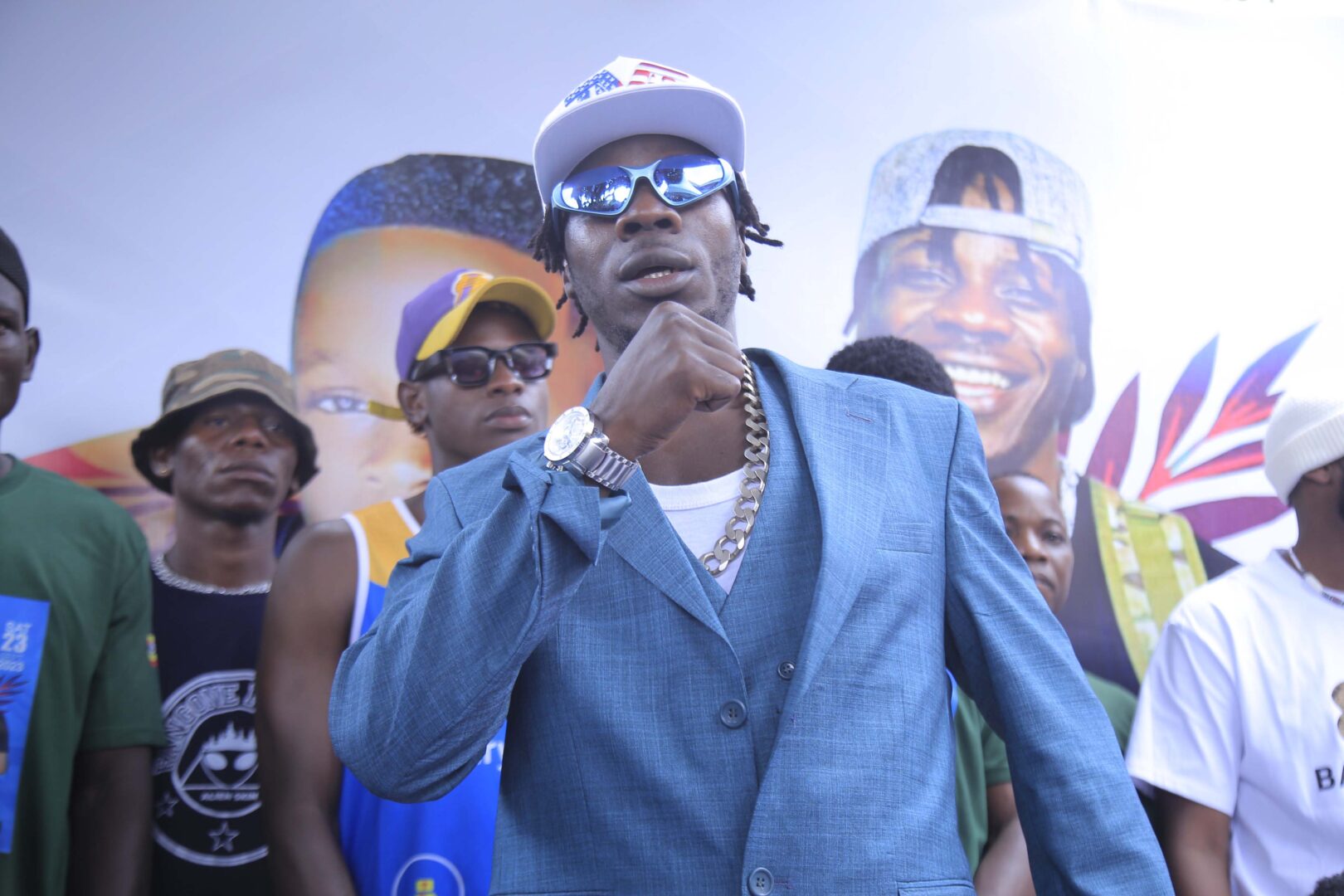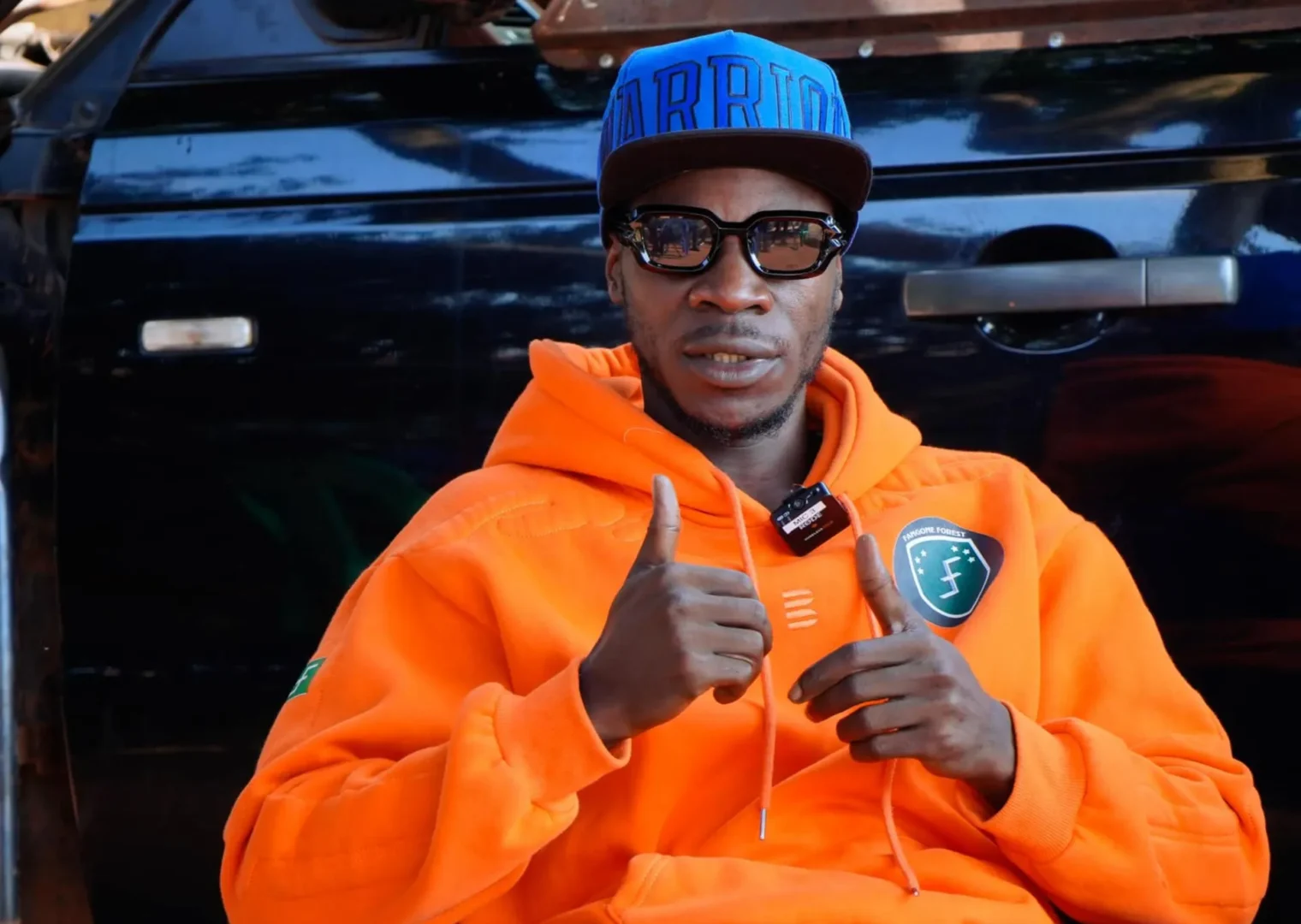KAMPALA, Uganda — The sudden disappearance of Ugandan musician Patrick Mulwana, popularly known as Alien Skin, has ignited a storm of speculation, outrage, and confusion, underscoring the fragile line between celebrity, politics, and law enforcement in the country.
For days, rumours circulated across social media that the outspoken singer had been arrested in a clandestine operation. Fans demanded answers, convinced he had been taken by the authorities.
The Uganda Police Force eventually moved to quell the speculation, with Deputy Spokesperson SP Patrick Onyango categorically denying that Alien Skin was in custody. Yet, in the same breath, he confirmed that police are actively searching for him over “outstanding allegations” and appealed to the public to help track him down.
The official denial, while dismissing claims of a secret arrest, did little to clarify the situation. Instead, it deepened public suspicion. If he has not been arrested, then where is he? And why would his own team initially claim otherwise?
From the streets to stardom
To understand the magnitude of the mystery, one must first appreciate the unlikely trajectory of Alien Skin himself. Emerging from Kampala’s ghettos, his breakthrough hit ‘Sitya Danger‘ became an instant street anthem. His raw delivery, laced with unvarnished authenticity, resonated with a generation of disillusioned youth.
Unlike polished mainstream acts, Alien Skin presented himself as the embodiment of the ghetto struggle—a defiant figure who rejected compromise and demanded to be heard on his own terms. He quickly built a cult-like following, not just as a musician but as a symbol of resistance against Uganda’s entertainment establishment.

His rise was amplified by highly publicised confrontations, particularly his bitter feud with fellow musician Pallaso of the Mayanja family. Their violent clashes spilled into headlines, cementing his reputation as a man who lived by the same “danger” he sang about.
In Uganda’s hyper-competitive industry, Alien Skin thrived on controversy, crafting a persona that blurred the line between artistic performance and lived reality.
The political shadow
But no major Ugandan musician exists in a vacuum. The country’s cultural scene has long intersected with politics—most famously through Robert Kyagulanyi Ssentamu (Bobi Wine), who transformed from pop star to opposition leader, shaking the foundations of President Yoweri Museveni’s rule.
Alien Skin’s enormous appeal to the urban youth inevitably drew political attention. Despite multiple brushes with the law, including allegations of assault and robbery, he appeared shielded from serious repercussions. On the contrary, he was granted platforms to perform at high-profile ruling party (NRM) events, even in the presence of President Museveni.

To many observers, this suggested a pattern of political instrumentalisation—where the state co-opts influential cultural figures to counterbalance opposition voices. Alien Skin’s disruptive persona and his ghetto credibility made him an effective tool: a cultural figure capable of commanding loyalty from the same demographics opposition politicians sought to mobilise.
It is within this context that the current confusion surrounding his disappearance takes on a more sinister dimension. Is Alien Skin truly missing, or is he entangled in a larger game of political utility and selective enforcement?
Three theories, one mystery
The absence of clear information has spawned competing theories.
One camp insists the saga is a publicity stunt, a tactic artists have long used to generate attention in Uganda’s crowded entertainment landscape. A vanishing act, they argue, guarantees headlines, virality, and sustained relevance.
Another group points to the long-standing rivalry with the Mayanja family, framing his disappearance as part of an ongoing industry feud. In Uganda’s entertainment circles, where competition is often laced with personal and political undertones, the suspicion of foul play by rival camps is never far-fetched.

The third, and perhaps most troubling theory, situates the disappearance within Uganda’s political machinery.
Also Read: Police hunt Ugandan artist Alien Skin after death of ex-gang member Top Dancer
Alien Skin’s unique position—as both a celebrated disruptor and a state-linked performer—has raised fears that his fate may be dictated not by the courts or his music, but by his usefulness to the regime. If he has fallen out of favour, critics suggest, his disappearance may reflect the precariousness of being a cultural pawn in a broader political game.
The Bigger picture
What Alien Skin’s disappearance ultimately exposes is the uneasy intersection of music, politics, and state power in Uganda.
Cultural figures who rise to prominence are rarely left alone; they are either absorbed into the ruling system, silenced, or demonised depending on their alignment.

Alien Skin’s story illustrates the cost of influence in a country where the youth are both a vital voting bloc and a restless force of discontent. His journey from ghetto underdog to state-favoured performer, and now to a man whose whereabouts are shrouded in mystery, raises uncomfortable questions:
- Why do Ugandan artists seem fated to collide with politics?
- Is Alien Skin’s disappearance a reminder that no star can rise above the state’s reach?
- Or is this simply the latest chapter in an artist’s calculated quest to remain relevant by any means?
Whatever the truth, Alien Skin’s saga underscores a sobering reality: in Uganda, once an artist achieves mass influence, they cease to be merely entertainers. They become pieces in a political chessboard, where fame and danger are inseparably entwined.

